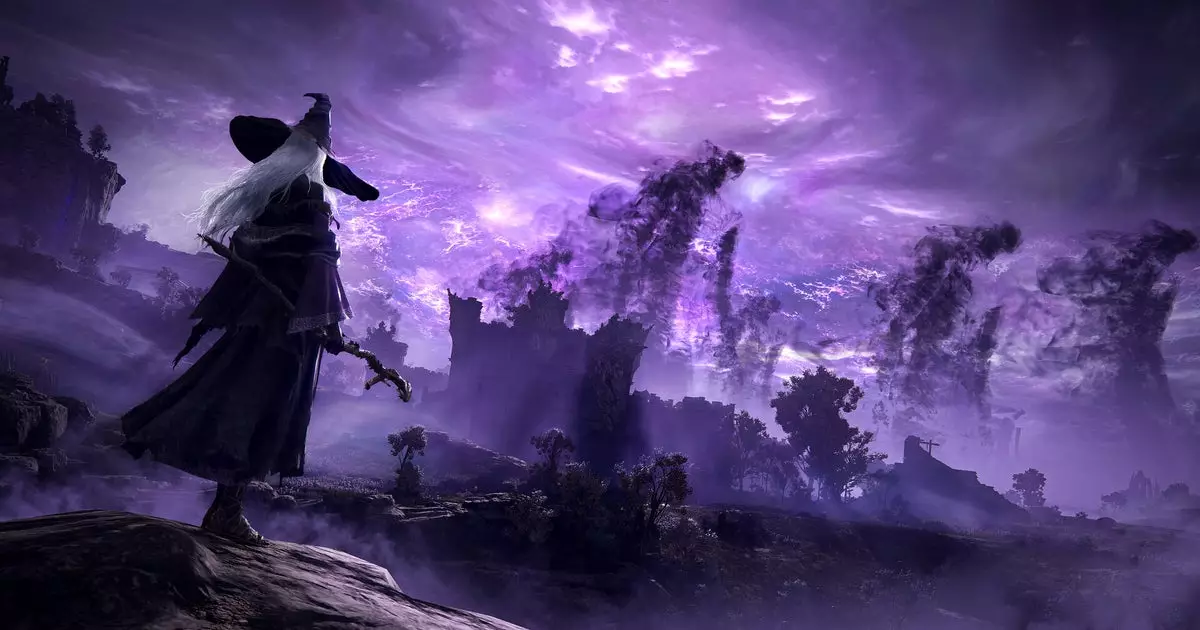Elden Ring, a title that has captured the hearts of gamers around the world, recently sparked widespread excitement with the announcement of a new installment, *Elden Ring: Nightreign*. However, this enthusiasm quickly transformed into disappointment among segments of its fanbase as it became clear that the game is heavily centered around cooperative gameplay. In this article, we will critically examine what *Nightreign* offers, how its cooperative mechanics differ from previous entries in the franchise, and what this means for solo players.
At its core, *Nightreign* invites players to step into a reimagined version of the iconic Limgrave map, but with a twist: a parallel universe that feels familiar yet distinctly different. Players can choose from eight available characters, embarking on quests against an array of enemies while concurrently taking on a series of boss battles at the end of each in-game day. Each cycle, which lasts fifteen minutes, introduces unique challenges and a deadly environment that constricts gameplay as darkness descends — an unmistakable nod to battle royale mechanics. This newfound design leads to an intriguing blend of gameplay elements, but also raises questions about the game’s identity within the Elden Ring universe.
Despite the excitement that comes with every new title from FromSoftware, the transition to a co-op-focused experience signals a shift in direction that may alienate longtime fans who previously reveled in the solitary nature of the original games. The game appears to cater to players who thrive in a group setting, presenting an experience that emphasizes teamwork over individual exploration.
True to its co-op design, *Nightreign* aims to balance gameplay around three-player teams, dismissing two-player options altogether. Game director Junya Ishizaki cites this trio dynamic as the optimal approach for maintaining manageable gameplay without overwhelming players. This strategy illustrates FromSoftware’s intent to create an inviting social atmosphere, promoting collaboration while still maintaining challenges.
Nonetheless, the exclusion of certain mechanics traditionally found in single-player experiences leaves solo players wanting more. Unlike its predecessors, *Nightreign* will not include Spirit Ashes or equivalent summonable NPC allies. While some may argue that the inclusion of a “spiritual buddy” tied to one of the preset characters can compensate for this absence, it is evident that the game does not place as much emphasis on independent strategy or exploration.
Another noteworthy departure is the inability to leave player messages, a signature aspect of FromSoftware’s games that allows for interaction and communication between players in their often unforgiving worlds. The absence of this element hampers the overall depth and engagement within the solo player experience, limiting the opportunities for guidance and camaraderie.
Though *Nightreign* can indeed be played offline, with a scaling down of enemy health pools for solo players, the underlying design philosophy casts a shadow on individual pursuits. One might wonder whether this is merely a way for FromSoftware to appease a segment of its audience or if there is a more substantial plan in place. The game’s mechanics suggest that while solitary gameplay is permissible, it is not the preferred mode of play.
Intriguingly, the game is not positioned as a “live service” title, meaning that players will receive the entire experience upon purchase without pricy DLCs or season passes. This assurance could serve to soothe some fans, but it also highlights a crucial area of concern: how *Nightreign* will expand in future updates, if at all.
As speculation surrounds *Nightreign* and its place in the larger FromSoftware narrative, questions about the future persist. While Ishizaki has hinted that the team does not have a definitive plan for developing further multiplayer-centric titles, there remains a hope that they will explore the prospect of a more traditional single-player offering down the line.
In a landscape where multiplayer experiences increasingly dominate the gaming market, *Elden Ring: Nightreign* stands at a crossroads. For fans dedicated to the solitary challenge that characterized previous entries in the franchise, the new emphasis on group dynamics may feel like a departure from the series’ roots. Nevertheless, as players delve into this new experience, they may discover that even within a collaborative structure, the essence of what makes *Elden Ring* captivating can prevail.
Ultimately, the future of *Nightreign* and its potential sequels remains a tantalizing mystery, inviting both excitement and trepidation, as loyal fans brace themselves for a new era in Elden Ring gaming.


Leave a Reply